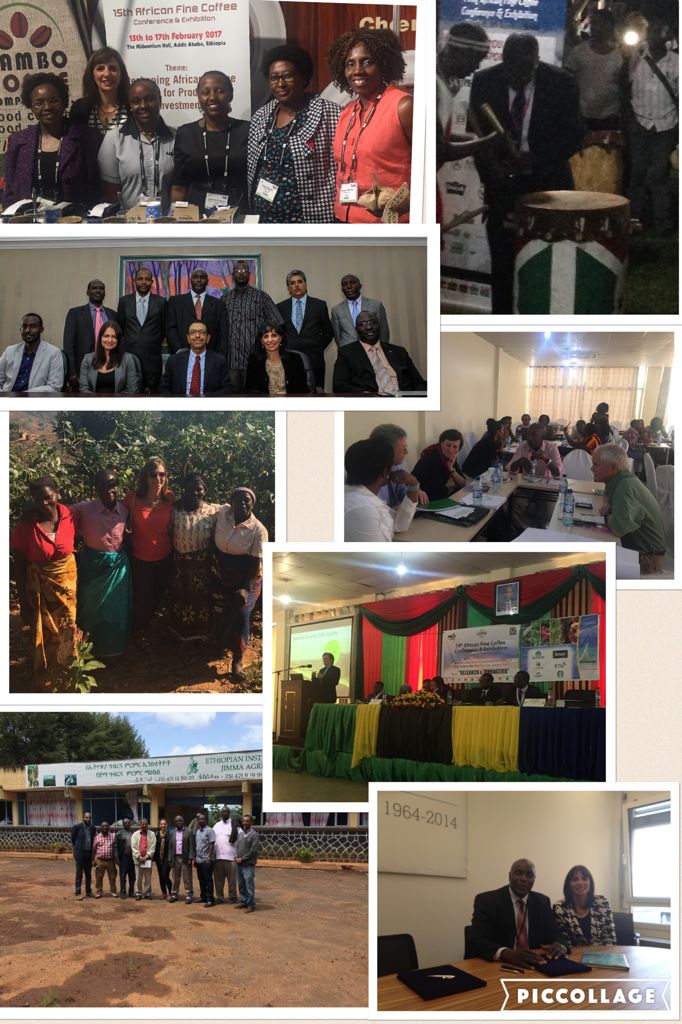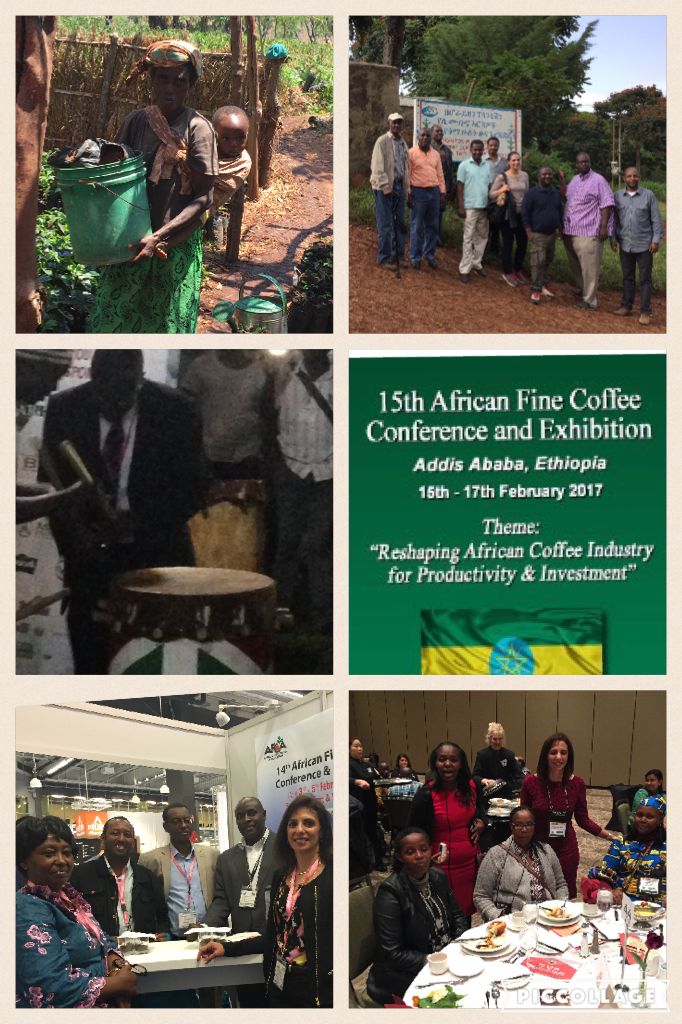What is the importance of the African Fine Coffees Association Expo? What has your involvement been over the years?
The African Fine Coffees Expo has become an important event, marked globally on the coffee industry calendar. It is an opportunity for everyone involved in the coffee industry to get together and meet to discuss coffee related issues. The conference and exhibition is over a period of three days, starting off with a welcome, networking cocktail. However, many industry players use the conference as an opportunity to host meetings before and after, and arrange origin trips around the conference dates.
Over the past years, the conference has grown substantially attracting more and more international delegates and therefore promoting not only African coffees, but the host countries too.
Aside from the interesting plenary sessions and the exhibition, one of the added benefits of the conference is that you can meet both your suppliers and customers in one venue, The plenary sessions are aimed at all areas of the coffee industry. AFCC&E has also become an opportunity for certification bodies to meet and host events alongside the conference.
One of the unique aspects of the conference is that even if you arrive and don't know a soul you'll be sure to leave having made many new business contacts and friends. By registering as a full delegate for the conference you are entitled to attend all plenary sessions, plus lunches each day and social events each night. There is a warm, inviting African feeling to the conference that you don't find at other global coffee events.
You also have the opportunity, for an additional fee to register for the coffee safari before the conference and exhibition. This is really a great few days of visiting the coffee growing regions in the host country.
I have been on the Board of AFCA since February 2011 and have been very involved in many different aspects of the conference and exhibition. From assisting with planning the conference themes, evaluating speakers topics and organizing marketing materials as well as being on the team to evaluate the facilities and hotels for each conference. One of my focal projects has been the Gender Program, which I have spearheaded, and each year have worked with AFCA to plan and host the Gender Day which usually is held the day before the conference starts.
What is your favourite part of the Expo?
Each year is exciting because there is a different host country, so it is a new and exciting coffee adventure. From the diverse topics you are educated during the plenary sessions and always learn something new. It is also great to meet up with coffee friends every year as well as meet new people. It is hard to choose one favorite event.
Can you tell us a bit more about Taste of Harvest?
The Taste of Harvest program is the leading regional cupping competition in Eastern and Southern Africa. It provides producers, millers and exporters in AFCA member countries with a platform to showcase their coffee.
While the main purpose of Taste of Harvest is to identify and promote the region’s quality coffees, the program has a much broader impact on the development of the region’s coffee sector by facilitating linkages between African producers and international buyers and building capacity across the African coffee value chain.
The coffees are evaluated by a panel of qualified judges according to the SCAA cupping protocol.
AFCA together with Bean Auction has implemented a new online auction for the Taste of Harvest coffees. The first auction took place in October, where a small group of farmers in Malawi and Zambia put forward some of their best lots to trial the first online auction of this nature in East Africa. The objective of the project is to show producers the benefits of investing in improving coffee quality. The second auction took place in Tanzania in November. Following this is Kenya and Uganda and then Ethiopia which will coincide with the conference dates.
Do you think that African coffees have grown in regard in the global community? Has quality increased over the years?
Whilst the continent produces around only 12% of global production, I do believe that African coffees have become much more sought after globally. Traditionally Kenyan coffee was the most associated origin of Africa. However, international roasters are more and more enthusiastically buying a wide variety of African coffees. All qualities across the board are sold internationally, from the very lowest quality to the absolute top specialty grades. There is a swing more and more to relationship coffee, with
even micro roasters making origin trips to select the coffees they would like to buy.
"Women are at the forefront of coffee producing communities. They earn less than men, own less land, control fewer assets and have less access to credit and markets. However, they do as much as 75% of the work on the coffee plantation, as well as looking after the children and family home."
What is the role of women in these coffee communities?
Women are at the forefront of coffee producing communities. They earn less than men, own less land, control fewer assets and have less access to credit and markets. However, they do as much as 75% of the work on the coffee plantation, as well as looking after the children and family home. This disparity between male and female coffee producers has been amply illustrated by research and reports. Women tend to pay more attention to horticulture, processing and harvesting of coffee. However, they need to be able to have equal opportunities; for example to be able to attend the same training and field days that male farmers attend. AFCA has worked with partners on various programs, and in 2014 partnered with ITC (IWCA), Hivos and 4C in the "Coffee is Cool" concept; coffee farming as a family business.
How has the coffee importing business changed?
Because coffee is an exciting and passion driven career, there appears to be more and more interest in the industry. This translates into more buyers. In the past there were the traditional buyers, who were mainly buying FAQ coffees. No-one discussed specialty coffees; there were good quality and top quality coffees. With the birth of micro roasters, specialty and craft roasters, to name but a few sections of the market, importing of coffee has taken on a different path. The interest in coffee has grown an enormous amount. Globally there are brokers, traders and roasters who are making more origin trips, often together with their customers, to find the specific coffees they are searching for. Some of the world's largest roasters are now looking at specialty coffees, and not only their traditional purchases,because there is a demand for these qualities, albeit in small quantities. In my opinion there are two sides to the importing market, the large volume coffees which have always been traded and in the past few years the specialty and micro lot coffees which are sought after coffees. Aside from this there are the certified coffees, such UTZ, RFA and Fairtrade and that is another avenue of the coffee market.
My second term on the AFCA Board will end in February and it has been an amazing and growing experience for me. I have had the opportunity be part of so many new and exciting projects through AFCA and meet many wonderful people. I have truly enjoyed it.

